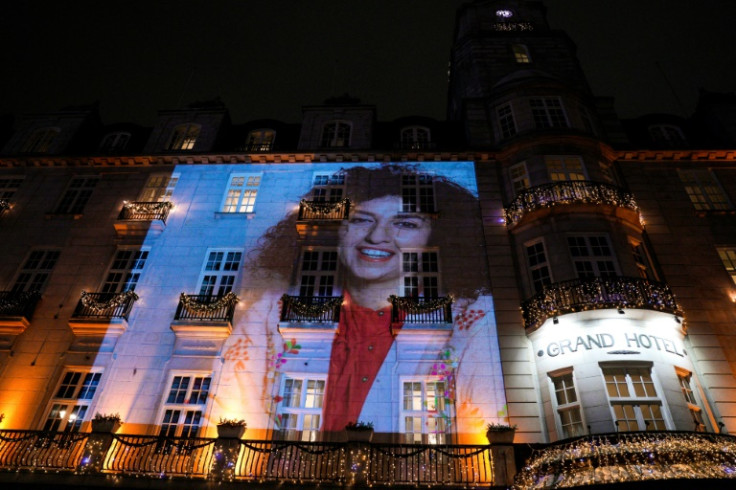
Iranian authorities on Wednesday freed Nobel peace prize winner Narges Mohammadi from prison for three weeks on medical grounds, a move supporters decried as "too little too late" with the Nobel committee urging a permanent release.
Addressing reporters in Paris, Mohammadi's 18-year-old son, Ali Rahmani, said he had been able to speak by phone to his mother for the first time in two years.
Her lawyer Mostafa Nili earlier announced on X that her jail sentence had been "suspended" for three weeks and she had been released.
Her supporters said: "A 21-day suspension of Narges Mohammadi's sentence is inadequate."
"We demand Narges Mohammadi's immediate and unconditional release or at least an extension of her leave to three months," they said in a statement, describing the measure as "too little, too late".
In a sign of her defiance, her husband Taghi Rahmani told reporters in Paris that Mohammadi shouted "Woman Life Freedom" after her release, the slogan of the 2022-2023 protest movement that rocked the Islamic authorities.
"She came out chanting the slogan Woman Life Freedom," he said.
"She came out in a good state of mind, a combative state despite her very fragile state of health."
Mohammadi's son Rahmani told reporters that their phone exchange was brief but intense.
"She was able to tell me that she loves me," he said.
"The first thing she told me was that she'd left Evin prison without the compulsory veil," he added.
"What touched me the most was that she will continue to fight relentlessly against the Islamic Republic of Iran to have gender apartheid recognised as a universal crime throughout the world, and that she will also continue to fight against the death penalty."
Mohammadi has been jailed since November 2021 over several past convictions relating to her advocacy against the obligatory hijab for women and capital punishment in Iran.
She has not seen her husband and twin children for several years and has spent much of the last decade in and out of prison.
Supporters said her release did not even amount to a medical furlough and was merely a suspension, meaning Mohammadi would have to serve "an additional 21 days" on her return to Tehran's Evin prison.
The head of the Norwegian Nobel Committee, Jorgen Watne Frydnes, told reporters: "We call upon the Iranian authorities to permanently end her imprisonment and ensure that she will get adequate medical treatment for her illnesses."
Mohammadi, who won last year's Nobel Peace Prize for her work campaigning for human rights in Iran, had last month undergone bone surgery, including a bone graft, for a non-malignant growth.
"The denial of proper medical care and sufficient recovery time post-surgery has led to the rapid development of bedsores and intensified pain in her back and legs," her supporters and family said.
"After over a decade of imprisonment, Narges requires specialised medical care in a safe, sanitary environment -- a basic human right," they added.
Lawyer Nili said the prosecutor allowed the release based on medical advice due to "her physical condition after the removal of a tumour and a bone graft three weeks ago."
"The tumour was benign but she needs check-ups every three months," he added.
Behind bars and deprived of the right to speak to her family in France, Mohammadi had refused to give up campaigning, staging protests in the yard of Evin prison and going on hunger strikes.
In a letter from prison in September, she condemned the "devastating oppression" of women in Iran.
Mohammadi was a strong supporter of the 2022-2023 protests, calling for the ousting of the Islamic authorities under Ayatollah Ali Khamenei.
In June, she was sentenced to an additional year behind bars for "propaganda against the state".
She refused to appear in court for the trial after her request for it to be held in public was rejected.







